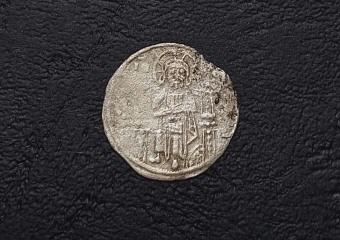Saint Nicholas - the ambassador of good! is the topic of the Saturday lecture at the museum
 St. Nicholas is one of the most revered saints in the entire Christian world, but why did he turn to Santa Claus, we will find out this Saturday, December 7, during the traditional lecture at the museum. The chief curator of the History Museum in Burgas - Ivanka Deleva will tell in detail about the "good old man" and his connection with the Christmas presents.
St. Nicholas is one of the most revered saints in the entire Christian world, but why did he turn to Santa Claus, we will find out this Saturday, December 7, during the traditional lecture at the museum. The chief curator of the History Museum in Burgas - Ivanka Deleva will tell in detail about the "good old man" and his connection with the Christmas presents.
St. Nicholas' kindness and mercy are the cause of his immense popularity around the world, and his actions are becoming a universal example of imitation. The miracles attributed to the good old man are so many that he patronizes children, sailors, prisoners, lawyers, non-families, bankers and merchants. In his name are baptized children and temples, cities and tourist sites, vessels, natural landmarks and more. The saint's image is reproduced in icons, souvenirs, stained glass in churches, by sea lights and all architectural works. While in the East the veneration and image of St. Nicholas remain unchanged for centuries, in the Western countries he is intertwined with a local deity of cold and various creeds that make him a noble old man with a white and long beard. As early as November, Sinterklaas began touring the houses to see if the children were obedient, and on December 6th, Saint Nicolas day, the best gifts were given out. Invisible Sinter Klaas becomes Santa Claus, and Christian symbolism gives way to lavish Christmas bazaars, euphoric celebrations and chocolate figures of the "good old man". Today, in many countries around the world, there are initiatives to "differentiate" Saint Nicholas from Santa, separating the Christmas holidays from reverence for the saint and focusing on his messages, and these are the pursuit of God's wisdom, compassion, charity without showing, doing for the good for the sake of the good itself.
The traditional lecture of the Burgas Museum will be held this Saturday, December 7, at 11:30 am at the Ethnographic Exposition at 69 Slavyanska St. (behind St. Cyril and St. Methodius Church). The entrance fee is preferential - for adults 2 BGN, and for students and pensioners - 1 BGN.


Comments
comments powered by Disqus